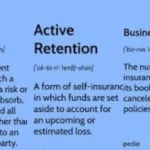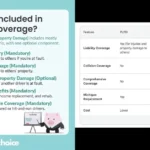DMT (N,N-Dimethyltryptamine) has a long-standing reputation as one of the most powerful psychedelics known. Occurring naturally in various plants, animals, and even humans, DMT has historically been used for spiritual and healing purposes, particularly in indigenous ceremonies involving brews like Ayahuasca. Recently, a new form of DMT consumption has emerged—DMT vape cartridges or “DMT cart.” These devices make the intense, short-lived psychedelic effects of DMT more accessible than ever, sparking a surge in popularity. However, as with any powerful substance, DMT carts come with a range of effects, risks, and legal implications that need to be carefully considered.
Understanding DMT: Nature’s Powerful Psychedelic
DMT is a tryptamine, a class of compounds structurally similar to serotonin, the brain’s “feel-good” neurotransmitter. When consumed, DMT primarily interacts with serotonin receptors, which are closely involved in regulating mood, perception, and cognition. In natural settings, DMT is found in a variety of plants, such as Psychotria viridis and Diplopterys cabrerana, which are ingredients in the ceremonial brew Ayahuasca. Indigenous cultures in the Amazon Basin have used Ayahuasca for centuries in spiritual rituals, accessing what they believe to be higher realms of consciousness and spiritual insight.
In its pure, isolated form, DMT is typically a crystalline white or yellow powder. When smoked or vaporized, DMT provides an intense, fast-acting experience that typically lasts around 5 to 20 minutes. During this short time, users often report vivid, immersive visual landscapes, intense emotional experiences, and a profound sense of leaving the body or dissolving the ego. Because of the rapid onset and brevity of its effects, DMT is sometimes referred to as the “businessman’s trip,” providing a potent experience in a short span of time.
The Rise of DMT Carts
DMT vape cartridges have quickly gained attention in the psychedelic community. Unlike traditional methods of consumption, such as smoking DMT crystals or consuming Ayahuasca, DMT carts offer a more discreet and convenient way to consume the substance. These vape cartridges are typically filled with a DMT-infused liquid that can be vaporized and inhaled, often mixed with other diluents or solvents to create a smooth experience when inhaled.
Using a DMT cart involves attaching it to a standard vape pen battery, making it nearly identical to using any other vape device. This form of consumption appeals to those who may not have experience with traditional psychedelics, as well as seasoned psychonauts seeking a reliable and easily dosed experience. By simply adjusting the number of hits taken, users can have some control over the intensity of their experience.
Pros and Cons of DMT Carts One of the main advantages of DMT carts is convenience. Traditional DMT use requires specialized preparation, such as the extraction of DMT from plant material or the brewing of Ayahuasca. DMT carts, however, allow for immediate consumption with minimal setup. Additionally, because vaping is more socially normalized, using a DMT cart can feel less conspicuous.
On the downside, the ease of use may lead some individuals to underestimate the substance’s potency, potentially leading to overwhelming or psychologically distressing experiences. Furthermore, because DMT is a controlled substance, there are no regulations governing the production of DMT vape cartridges. As a result, the quality, purity, and safety of these products can vary significantly, making it essential to approach them with caution.
Effects of DMT and What Users Report
DMT is well-known for producing intense, profound experiences that often defy description. Users frequently report encountering intricate geometric patterns, hyper-real visuals, and even otherworldly entities during a DMT trip. These entities are sometimes described as spirits, beings, or guides, and the experience can range from comforting to disconcerting. Many users find the experience deeply meaningful, describing feelings of oneness, ego dissolution, and spiritual insight.
Beyond the visuals, DMT also affects emotions and cognition. Some users report a powerful sense of awe, euphoria, or a peaceful detachment from reality. Others may experience fear or confusion, particularly if they are unprepared for the intensity of the trip. The effects come on quickly, peaking within seconds to a few minutes after inhalation, and usually resolve within 15 to 20 minutes. This brevity makes DMT unique among psychedelics, as other substances typically require hours for the experience to run its course.
Risks and Safety Concerns
The use of DMT, especially in the form of vape cartridges, is not without risks. Some of the primary concerns include:
Mental Health Risks DMT’s powerful effects can lead to intense emotional and psychological reactions. For some, the experience can bring up unresolved traumas or lead to anxiety and paranoia. There is also a risk of triggering latent mental health conditions, such as schizophrenia or bipolar disorder, particularly in those with a family history of such issues. People with a history of mental health challenges are advised to avoid using DMT without proper support or guidance.
Physical Health Risks Inhaling DMT through a vape cartridge presents some physical risks as well. Because DMT carts are unregulated, they may contain additives or impurities that could cause harm. Certain cutting agents used in vape products, like vitamin E acetate, have been linked to lung damage, and users have no way to verify the purity of the DMT in untested products.
Setting and Dosage As with any psychedelic, “set and setting” play a critical role in the DMT experience. It’s recommended that users approach DMT with a calm, prepared mindset and in a safe, comfortable environment. Dosage is also crucial—while taking too little DMT may lead to a mild experience, taking too much could be overwhelming or frightening.
The Legal Status of DMT and DMT Carts
DMT is illegal in most countries, classified as a Schedule I substance in the United States and in similar classes in other countries. This categorization indicates that DMT has a high potential for abuse, no recognized medical use, and a lack of accepted safety guidelines for use under medical supervision.
In certain cases, religious exemptions exist. For instance, some indigenous groups and specific religious organizations have obtained legal permission to use DMT-containing Ayahuasca in ceremonial practices. However, these exemptions are typically limited to natural forms of DMT and do not cover synthetic DMT or vape cartridges.
Given these strict regulations, possessing or using DMT carts can carry severe legal penalties. Those interested in DMT should research the legal implications in their area and consider the consequences of breaking controlled substance laws.
Ethical and Psychological Considerations
Using DMT, particularly in a modern, recreational context, raises questions about cultural and ethical implications. DMT has historically been used in indigenous cultures for sacred purposes, often under the guidance of shamans or spiritual leaders. In contrast, the rise of DMT vape cartridges and their casual use could be viewed as a commodification of a deeply spiritual substance.
For many, the profound insights and experiences gained from DMT require careful integration into daily life. This process often involves reflecting on the experience, discussing it with a therapist, or engaging with a support group. Individuals who approach DMT casually may miss out on the opportunity for deep personal growth or healing, instead experiencing the substance as a fleeting, albeit intense, recreational high.
Alternatives to DMT Carts: Exploring Safe, Legal Options
For those intrigued by altered states but seeking legal and safer options, alternatives are available. Mindfulness practices like meditation, breathwork, and sensory deprivation can induce altered states of consciousness without the use of any substance. Additionally, other legal entheogens, such as certain cacti containing mescaline, may offer similar experiences to DMT.
Researchers are also exploring the therapeutic potential of psychedelics in controlled settings. Psilocybin, the active ingredient in “magic mushrooms,” is legal in certain jurisdictions and may offer an alternative, especially for individuals seeking mental health benefits in a legal context.
Conclusion
DMT vape cartridges have introduced a new method of experiencing one of the world’s most powerful psychedelics, offering convenience and intensity in equal measure. While DMT carts are popular among certain circles, they are not without their risks. For anyone considering this method, it is vital to approach DMT with respect, preparation, and awareness of the legal and psychological implications.
Understanding the effects, risks, and ethical considerations surrounding DMT is essential. This powerful compound has the potential to offer profound insight and healing, but only when used thoughtfully and responsibly. Whether through legal alternatives or traditional practices, there are many paths to exploring consciousness, and individuals should seek out the approach that aligns with their values, safety, and well-being.











